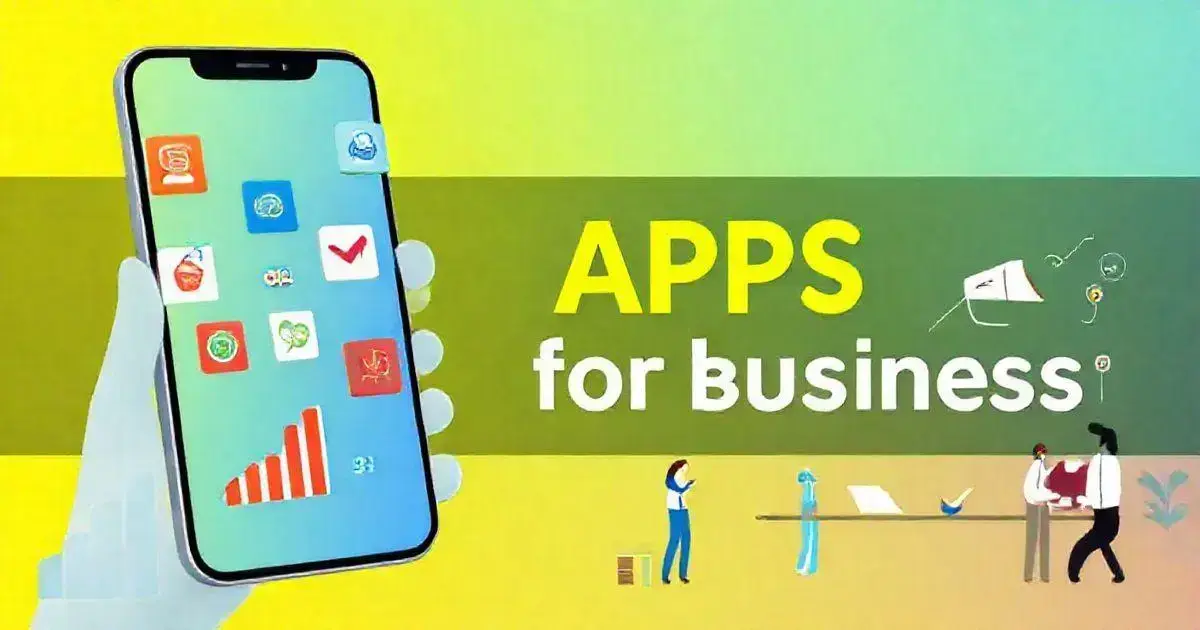Introduction to Small Business Apps
In today’s digital landscape, top apps for small businesses play a critical role in streamlining operations and improving productivity. These applications offer a variety of features tailored to meet the unique needs of small enterprises. Whether it’s finance management or customer relationship management, there are apps designed to handle it all.
Understanding these tools is essential. Project management apps enable teams to collaborate effectively, while accounting software simplifies financial tracking. Cloud-based storage solutions allow businesses to store documents securely and facilitate easy access for all team members.
Moreover, integrating these apps into your daily operations can help save time and reduce errors. Many apps also come with mobile versions, providing flexibility for business owners and employees who are always on the go. When selecting top apps for small businesses, it’s important to assess your needs and test out solutions that align with your goals.
Choosing the right apps involves assessing your business needs, considering user reviews, and trying out different solutions through free trials. This approach ensures you find the best fit without committing financially too soon. Thus, investing time in exploring small business apps can lead to significant operational improvements.
Benefits of Using Apps for Your Business

Using top apps for small businesses can make a big difference. They help save time and increase productivity. With the right tools, you can manage finances, keep track of projects, and communicate more effectively.
Many apps are easy to use and can be set up quickly. For example, accounting software can automate billing and invoice tracking, reducing the hassle of managing receipts.
Project management apps allow teams to collaborate in real-time, ensuring everyone is on the same page. Furthermore, using customer relationship management (CRM) apps helps businesses maintain relationships with their customers by keeping track of interactions and preferences.
With top apps for small businesses, you’ll streamline processes and boost overall efficiency.
Top 5 Must-Have Apps for Small Enterprises
Here are some must-have top apps for small businesses that can significantly enhance productivity and efficiency:
- Accounting Software: Crucial for managing finances, tracking expenses, and generating invoices. Examples include QuickBooks and FreshBooks.
- Project Management Tools: Help teams stay organized and effectively assign tasks. Examples include Trello and Asana.
- Customer Relationship Management (CRM): Helps in managing customer interactions and improving sales processes. Examples include HubSpot and Zoho.
- Communication Platforms: Enable real-time communication, ensuring everyone stays connected. Examples include Slack and Microsoft Teams.
- Social Media Management: Helps small businesses keep their social media presence active and managed efficiently. An example is Hootsuite. Using the top apps for small businesses like these will streamline your workflow and maximize efficiency.
How to Choose the Right Apps for Your Needs

Choosing the right apps for your business can be challenging. Start by identifying what you need. List out tasks that take too much time or are prone to errors.
Next, consider user-friendliness; the app should be simple enough for everyone on your team to use. Check for compatibility with existing systems to ensure a smooth transition.
Additionally, look for apps that offer customer support in case you run into issues. Don’t forget to read reviews and ratings to learn about other users’ experiences.
Finally, take advantage of free trials whenever possible. This will help you understand whether an app truly fits your business needs before making a financial commitment.
By following these steps, you’ll be able to select the best top apps for small businesses that enhance your operational efficiency and productivity.
Integrating Apps into Your Business Operations
Common Mistakes to Avoid with Business Apps

When using business apps, make sure to avoid some common mistakes. One major mistake is not providing proper training for your team. Users need to understand how to utilize the tools effectively.
Another issue is overloading users with too many apps. This can lead to confusion and decreased productivity.
It’s also important to regularly review app performance to ensure they are still meeting your business needs. Ignoring updates can cause security risks and technical issues.
Finally, failing to gather user feedback can result in missed opportunities for improvement. By addressing these common pitfalls, businesses can enhance the effectiveness of their app integration and achieve better results.
Future Trends in Small Business Applications
As we look to the future, small business applications will continue to evolve. New technologies like artificial intelligence and machine learning will become more common, providing businesses with better data insights.
For instance, apps that use AI can help in predictive analytics, improving decision-making. Another trend is the growth of cloud-based solutions. These allow for flexibility and scalability, making it easier for small businesses to adapt as they grow with the help of top apps for small businesses.
Additionally, more apps will focus on customer experience, integrating features like chatbots and personalized communication. Lastly, security will be a top priority as businesses look to protect data and maintain customer trust.
Keeping up with these trends will help small businesses stay competitive in the market by utilizing the best top apps for small businesses.
Conclusion
In summary, utilizing the right apps can greatly enhance small business operations.
From improving customer relations to streamlining processes, apps provide numerous benefits that can position a business for success.
By understanding the various options available and carefully selecting those that align with your needs, you can harness the full potential of technology to drive growth and efficiency.
As you move forward, keep an eye on emerging trends and continue to adapt your strategy.
This will ensure that your small business remains competitive in a rapidly changing digital landscape.
FAQ – Frequently Asked Questions about Small Business Apps
How can apps improve my small business?
Apps can streamline operations, automate tasks, and enhance communication, leading to increased productivity.
What types of apps should I consider for my business?
Consider accounting software, project management tools, CRM systems, and communication platforms.
How do I ensure the apps integrate well with my current systems?
Research compatibility options and look for apps that offer integration features with your existing tools.
What are the benefits of using cloud-based apps?
Cloud-based apps provide flexibility, scalability, and remote access to data from anywhere with an internet connection.
How often should I review the performance of my business apps?
Regular reviews, at least quarterly, help identify areas for improvement and ensure the apps are meeting business needs.
Are there free apps available for small businesses?
Yes, many apps offer free versions or trials, allowing you to test their functionality before any financial commitment.

